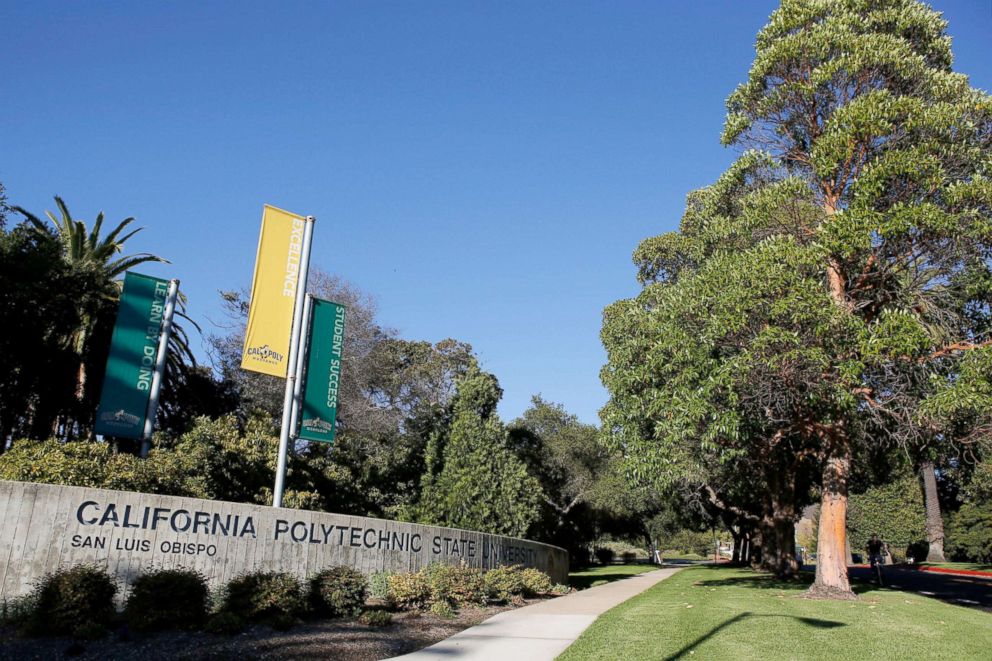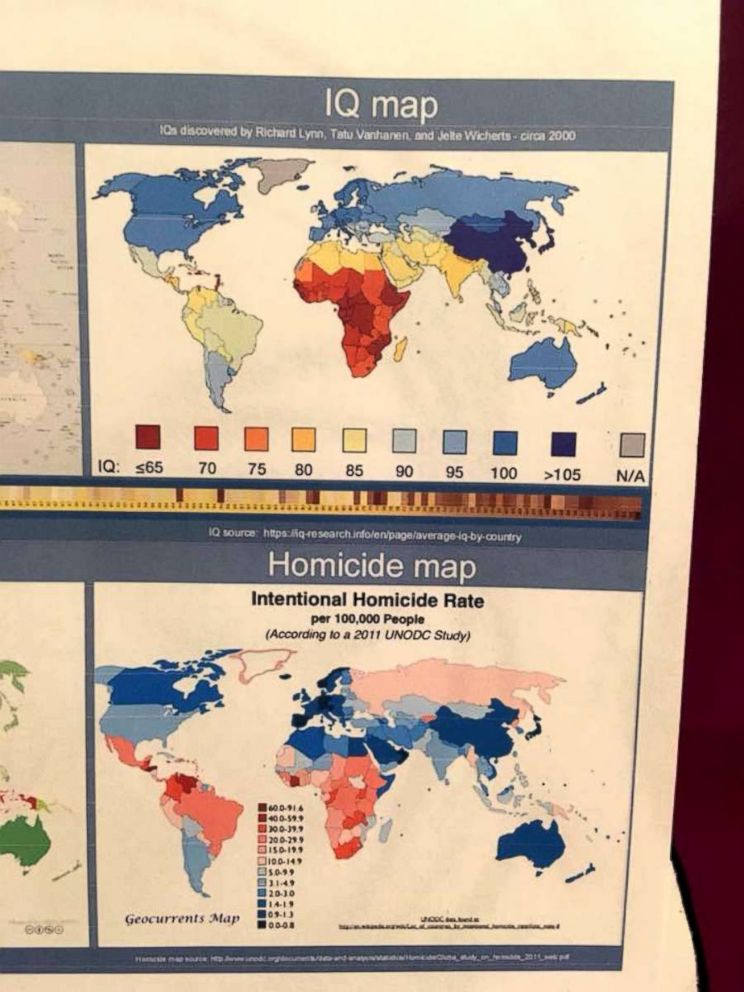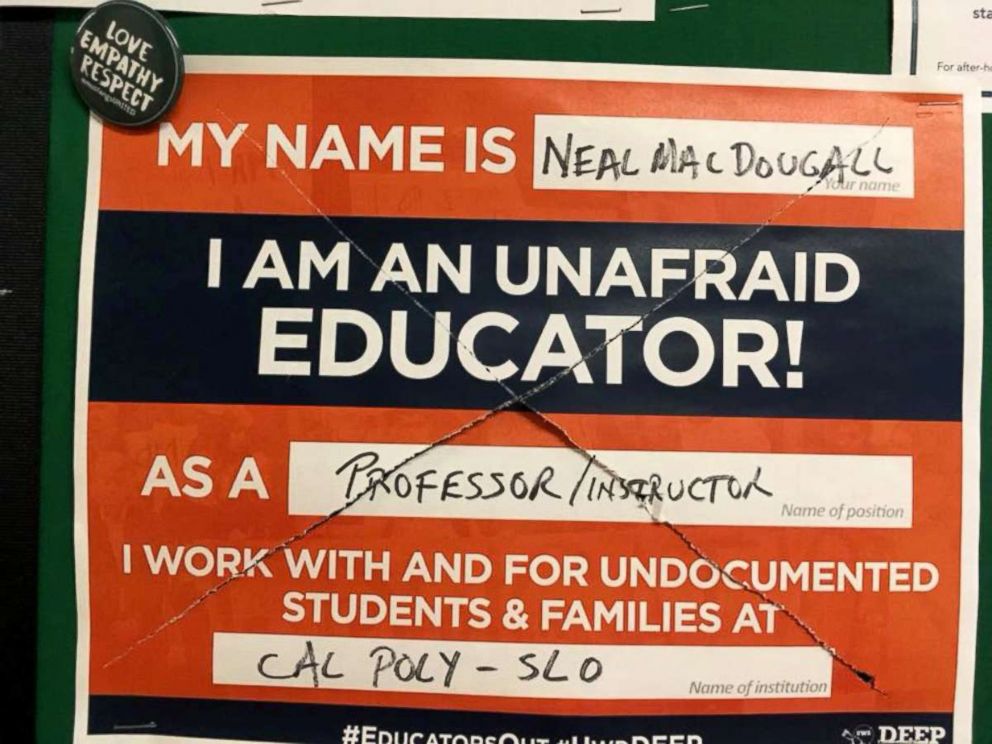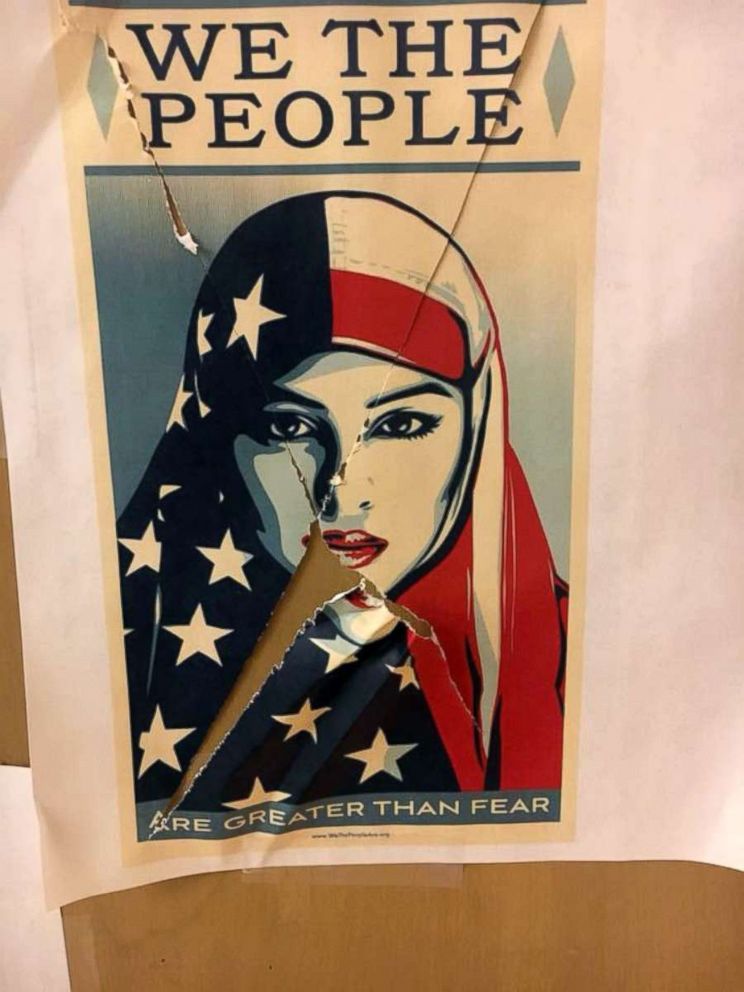Milo Yiannopoulos appearing at Cal Poly amid racially charged climate on campus
"There is, in fact, a culture of racism of Cal Poly," a professor told ABC News.
Controversy surrounds Milo Yiannopoulos' speech this evening at the California Polytechnic State University, San Luis Obispo, after the school was at the center of multiple racially charged incidents in recent weeks.
The Cal Poly College Republicans Club is hosting the "Fake News Panel" Thursday evening, which will include YouTube personalities Austin Fletcher and Carl Benjamin in addition to Yiannopoulos, said Matt Lazier, media relations director for the university.
A major police presence is expected at the sold-out event. In a statement, the university disassociated itself from the event, saying that it "is being presented by the club, not by the university."
"The university understands that the participants in the panel discussion are personalities that some members of our campus community may find offensive," said Lazier. "However, as a public university, Cal Poly is required to uphold free speech rights and provide an open forum for a variety of opinions, thoughts and ideas -- even those that may be distasteful or offensive."
Two of the university's professors expressed concern over Yiannopoulos' appearance in the current racially charged climate after photos emerged showing fraternity members in blackface and dressed as gang members, and racist posters were seen around campus. This is the second time Yiannopoulos has spoken at Cal Poly in less than two years, with his most recent appearance being January 2017.

Dr. Jose Navarro, an assistant professor in the university's ethnic studies department, told ABC News that he believes the sponsors of the panel event "implicitly endorse Yiannopoulos' Islamophobic, anti-feminist, alt-right and generally hateful positions."
"Indeed, it seems like the strategy of covert racists and bigots on campus to have such views disseminated by proxy," he said in an email to ABC News. "Inviting Milo to speak on campus, in short, is a way to get him to espouse the very ideas they believe without actually having to espouse those ideas publicly themselves, and then be held accountable by the campus community for their racism, bigotry and misogyny."
Dr. Neal MacDougall, a professor in the university's agribusiness department, called the club's decision to hold the panel at such a sensitive time "incredibly hurtful" and that it sends the message that "it really doesn't matter what students of color feel."
A Tribune Media report published last week found that Cal Poly has "the least racially diverse student population" among California's public universities. In 2017, 54.8 percent of the university's student body identified as white, which is the highest percentage of any public university in the state, according to the report.
Following the blackface incident, Cal Poly University President Jeffrey Armstrong said in a forum attended by nearly 1,000 students on April 12 that racism was not an issue at Cal Poly.
"I don't believe we have a culture that is racist," he said in the video, which was posted to the university's Facebook page. "I believe we have had some incidents that are awful and we are working very hard to get at the root cause and help people understand."
MacDougall said he "couldn't believe" the president's comments and added that Armstrong needs to address that "racism is a problem" at the university in order to improve the community in the long run.
"There is, in fact, a culture of racism of Cal Poly," MacDougall told ABC News.
Navarro said that while Armstrong deserves "some credit" for increasing the diversity of the student body, "nevertheless, the Cal Poly student body remains the whitest and wealthiest of any California public university."
"Simply put: if we do not create greater access to higher education for our major base of Californians (Latinos and other minorities), then they will not get high-wage jobs," he said. "The result of which will be that we will not be able to tax this base enough to replenish the coffers in the state that fund our universities and other public infrastructure."
The Cal Poly College Republicans did not immediately respond to ABC News' request for comment.
Racially charged posters seen on campus
On the morning of April 17, MacDougall came into his office in the agribusiness department to find a multitude of racially charged messages, he said.
The first thing he said he noticed when he arrived was a university police officer standing in front of a men's bathroom. The officer instructed him to not use the last stall, he said. A maintenance worker later told him that someone had written the "N-word" on the wall, he said. A student of MacDougall's colleague snapped a photo of the graffiti before it was cleaned up, he added.
Later, MacDougall said he noticed that several racist posters had been put up on bulletin boards near his office, and messages of inclusion that were already there had been defaced.
Among the racist material was a flier with a bullet list referring to "species and subspecies," which purported to prove that people who are not white are "not human," he said. Maps were also posted that were said to show a "correlation" of a higher concentration of rape where there's darker people, such as Africa, as well as a higher rate of potential homicides where there are lower IQs, which also used darker skin tones as a factor, he said.

MacDougall snapped photos of the material and posted them to his Facebook page later that day. University police at first said they would send someone, but they never did, instead instructing MacDougall to take the posters down, he said.
In addition, messages of inclusion, including a sign that stated MacDougall was an "unafraid educator" who works "with and for undocumented students & families," were slashed.


Armstrong responded to findings, saying he was "disgusted to report that there have been a variety of inappropriate and hateful actions on campus in recent days, from slurs being directed at students, to offensive graffiti and postings in or on our facilities."
"These activities are the desperate work of a few who would seek to spread hate and divide us at a vulnerable time," he said. "Our strongest response in the face of this rhetoric is to come together as one with the common goal of eradicating hatred from our community."
>Campus Greek life suspended over photos showing blackface
Armstrong has indefinitely suspended sororities and fraternities on campus as a result of photos surfacing showing a fraternity member in blackface and others dressed as gang members.
But Armstrong said he decided not to take action against individual students because it was their First Amendment right to express their views, he said in a video statement posted to Facebook.
Navarro said that he believes students and organizations who engage in "actions and speech that is severe or persistent enough to create a hostile environment for other students, staff and faculty based on race, color, religion, sex, gender, sexuality, age, etc., ought to be suspended or expelled."
"Indeed, I think the current issues related to free speech and the hostile environments they create raise an important constitutional question -- one that requires us to ask whether the right to free speech is greater than the right to equal protection and access to education," Navarro said.
Navarro said the students at Cal Poly are "unprepared for engaging in an incredibly diverse population" and that the university's lack of diversity will impress upon students an ignorance of diversity in the real world.
"If all Cal Poly students know about people different from themselves is filtered through stereotypes of these other people that are rendered on television or the internet, they might perform those same stereotypes in blackface or dressed up as Latino gang members," he said.



